22nd December 2021
The Spokesmen Cycling Podcast
EPISODE 289: Two Volcano Sprint winner and bike entrepreneur Andrew Phillips
SPONSOR: Jenson USA
HOST: Carlton Reid
GUEST: Andrew Phillips of Orb
LINKS:

TRANSCRIPT:
Carlton Reid 0:12
Welcome to episode 289 of the Spokesmen cycling podcast. This show was engineered on Wednesday 22nd of December 2021.
David Bernstein 0:25
The Spokesmen cycling roundtable podcast is brought to you by Jenson USA, Jenson USA where you will find a great selection of products at unbeatable prices with unparalleled customer service. Check them out at Jensonusa.com/thespokesmen. Hey everybody, it’s David from the Fred cast. And of course, I’m one of the hosts and producers of The Spokesmen cycling roundtable podcast since 2006. For shownotes links and other information, check out our website at the-spokesmen.com. And now, here’s my fellow host and producer Carlton Reid and the spokesmen.
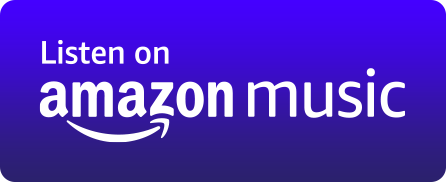
Carlton Reid 1:09
Thanks, David. And yes, I’m Carlton Reid and on today’s show, I’m talking with bike entrepreneur, Andrew Phillips, who rides and races with his own products. Earlier this year, he was the winner of the Two Volcanoes Sprint, an ultra endurance cycling race, which started in Sicily. And over two and a half days of hard riding, involved ascents of Mount Etna and Mount Vesuvius. He won that race riding his own brand of extra strong carbon wheels. He also founded an LED bike light brand with the USP that the long running front and rear lights stay attached to the bike. His first foray into the world of bike products was the Orb, a bike bottle with integrated LEDs making the bidon glow or flash for side on visibility. Here’s our chat.
Today I want to talk about your bike products. And you have got quite a few bike products over a number of years. But first of all, I’d like to congratulate you, of course, on on on winning the two sprints between two volcanoes. And you use your products for that race. So first of all, let’s let’s talk about that race? Where is it and which which two volcanoes does it go between?
Andrew Phillips 2:42
Yeah, so it’s it’s a race that’s in its third year now. And it runs between Vesuvius and on the outskirts of Naples in southern Italy, and Mount Etna, which is of course on Sicily. And normally it runs that way around from Vesuvius to Etna. This year, it was flipped came the other way started in Etna, or started at the foot of Etna climbed Etna twice, and then finished by climbing Vesuvius, and the finish line was at the bottom of Vesuvius.
Carlton Reid 3:20
And just in case anybody thinks, oh, that’s a nice warm trip you had there in you know, beautiful sunshine. There might have been some time it’s quite cold, wasn’t it? In a blog post you were talking about freezing fingers and all sorts so, so tell us about that.
Andrew Phillips 3:37
I think people hear Southern Italy, and they assume sort of Riviera in summer weather and, you know, beautiful flat, flat coastlines and things like that. But actually, it’s the third year I’ve ridden the race, and it’s been cold every year. I always get wet through and if you’re not, if you’re not ready for it, you can you can find yourself somewhere very remote and very cold,
Carlton Reid 4:05
So how what’s the distance between the two volcanoes this year?
Andrew Phillips 4:09
The race is about 1200 kilometres. It varies from about 1100 to about 1200. That that sort of distance but what makes it a really particularly tough race is the amount of climbing in that so I think there’s about 20 … it was either 24 or 26,000 metres of climbing over 12 100km this year.
Carlton Reid 4:31
This is like the Transcontinental which I’m sure more people are probably familiar with in that you’re self supported; you’ve got your own kit and and you choose whether to sleep or not sleep by the side of the road or in a hotel. So you basically got your own kit.
Andrew Phillips 4:49
Yeah, yeah, that’s right. So it’s a single stage self-supported race, which means when the when the clock starts at the start line, to when it stops at the finish line, you’re on your own, and any moment you’re not on in the saddle pedalling you’re, you’re losing time, essentially. So yeah, the aim, if you want to try and win a race like this, you’ve got to, you’ve got to sleep as little as you can get away with, you’ve got to minimise all those stops for getting food for going to toilet for, you know, absolutely anything. So I think after, at the end of the race, I’ve been riding something like 90% of the time in the saddle, legs turning,
Carlton Reid 5:35
And then other people may think, oh, I’d actually perform better I’ve actually a bit more sleep. So it’s just each rider is going to be they look at this and think I’m probably going to perform better if I do this. Is it or do all roughly have the same sleep patterns? What do you think others riders compared?
Andrew Phillips 5:56
I think, I think I think there’s a real range actually. And you definitely do go faster if you sleep a bit more you start you start getting inefficient when you when you are really sleep deprived, you start making bad decisions. So there’s a really fine balance to be had. And particularly in the longer races. Your your sort of sleep strategy is almost as crucial I think, as your fitness or your route planning although Two Volcanoes Sprint is a fixed route, unlike Transcontinental.
You got to go on the same road, you really have got you’re not choosing your route?
Exactly. Totally fixed route. So you’re you’re following the following the GPX file on your, on your GPS the whole way. Which, you know, there are pros and cons of both. The best thing I think about fixed route races is you don’t end up having to make any decisions about safety versus speed. So the big problem of the big problem of routes that aren’t, aren’t fixed route is, you know, you end up looking at an a road or equivalent and saying, Okay, well, if I go down there, you know, I’m going to save 20 minutes or whatever. But you know, there’s going to be a lot more traffic, and it’s potentially more dangerous. And all these other things come into play. So purely fixed routes can can take that away entirely, but they also take away one of the skills for a for a free-routed race is is the routing itself, the mapping skills and the preparation required,
Carlton Reid 7:37
Because you’re you’re gonna be doing the Transcontinental, you this next year. Is that one of your plans?
Andrew Phillips 7:42
Yeah, I am. That’s right. I’ve been I’ve been trying to ride the Transcontinental for for about four years now three, four years. I first applied in, in 2018. And I didn’t get a place because it’s massively oversubscribed. And a bit of a lottery. So that that was actually 2019 I volunteered at the race. And then that was the that I rode Two Volcano Sprint for the first time. Sort of, you know, looking for something else to something else to ride as I as I couldn’t do TCR I didn’t realise what sort of what a big annual part of my annual part of my life it will become. But yeah, finally this year, so I didn’t get in first year and then two years of being cancelled with a pandemic. Finally 2022, yes, I’m going to ride Transcontinental.
Carlton Reid 8:32
As is my son, of course, Josh is going to be riding that so he’s really Yes, he’s kind of looking at that route now in a bit more more detail. And it is it is you have got to me it does sound quite worrying that you know, you’re obviously gonna choose a road a lot of the time if that’s going to be the quickest way of doing it and even get you dragged along a bit only with with windstream and and traffic and stuff, but it’s not gonna be the safest thing to do.
Andrew Phillips 9:04
Yeah, I mean, one of the one of the skills I think, for the race organisers, and I know Anna Hazlock, who organises Transcontinental is very good at doing this and very keen to do it. But one of the skills, organising TCR is that plays those checkpoints in a way that discourages using larger roads. And actually, some roads, such as E roads in Romania are are banned. But for the most part, you’ve got totally free choice but but by putting those checkpoints so the first one for 2022 is in is in Czech Republic. And then next, you’re going to Passo Gavia in the Alps. And actually you use sort of you look at the you look at the the route between those two, and for the most part you’re you’re not really incentivized to take any take any particularly big road. So I think she’s done a really good job on that this year.
Carlton Reid 10:05
Let’s get back to the Two Volcanoes Sprint, which is before you, you won this year. Your your, your third attempt, but you didn’t read your blog post you didn’t really prepare in perhaps the web would think like, oh, let’s do some big training you’re most trained on the ride itself. Tell us, cos you got married. You got married the month beforehand, and that’s going to clearly dent your training schedule. So so did the fact that you didn’t prepare
Andrew Phillips 10:37
Well, so yeah, firstly, yes, that’s that’s right after so it was another another pandemic delayed delayed wedding reason I finally got got married this year. But to say that I was unprepared isn’t isn’t quite right, because I spend a lot of time on my bike and I I’d spent a bit less time than normal on my bike over the wedding and over, over honeymoon. But, you know, I was still getting out almost every day. But yeah, I then I then, I think that kind of left me rested mentally, possibly more than physically well enough that in the three weeks before the race, I had a really, really intensive training period. And found some found some real form in that in that short time, but it was sort of, you know, it’s backed up by the fact that I’ve been riding every day basically for the last sort of two three years or so.
Carlton Reid 11:38
Where am I speaking to you from, where are you? Where are you based, Andrew?
Andrew Phillips 11:41
At the moment I’m in Southern Italy and we spend most of our most of our time here sometimes to be found back in London as well. But one of the one of the reasons we moved here actually to to get out of London getaway change of scene was was how good the cycling is around here. The small roads in the hills and the weather as well make it a really perfect training ground
Carlton Reid 12:11
Brexit: is that a nasty word? With with licing across there, and well, I’m assuming you’re a UK passport holder.
Andrew Phillips 12:21
Brexit is a nasty word to me. Yes. But but it’s not actually had a massive impact on on the way we live because because we’re both resident here. So yeah, I’ve got I’m a British passport here. I’m not an Italian citizen, but I am an Italian resident. Actually, the main impact Brexit has had has been on my businesses and makes it much much harder to sell into the EU which will come as no surprise to you.
Carlton Reid 12:51
And then when we first started talking and you got in touch you’re basically saying one of the benefits of of you living in that part of the world and being able to take you know night trains and ferries and stuff to the start of the two volcanoes sprint it meant you didn’t have to have any flights so other people are coming in on flights and also worries with their you know, their bikes being broken on those flights and of course with with you taking trains and ferries you didn’t have that worry is that also a potential benefit to know how you did well this week? This year you didn’t have the flights?
Andrew Phillips 13:31
Yeah, absolutely. I think no one no one likes flying. People, people like getting where they’re going. But I stopped flying a few years ago for environmental reasons. And although I live in Southern Italy still the easiest way for me to get to Sicily are the cheapest way anyway for me to get to Sicily for the for the startline this year would have been by taking a plane but yeah, I I don’t think anyone who anyone who travels by aeroplane really finds it a pleasant stress free experience and especially when you’re taking a bike with you. You know you’re you’re wondering whether it’s going to be allowed on with the oversize baggage rules how much extra you’re going to be charged whether they’re going to break it when they’re loading onto the plane, you know, whether it arrived at all when you when you get to your destination, all that kind of stuff. And I think it really takes a lot out of you. So although I arrived on the same day as pretty much all the other riders most of the other riders, which was about about a day and a half before the race start i I’d had a night sleep on on the ferry down from down from Naples to Palermo. Really, really good night’s sleep there’s nothing like a there’s nothing like a sort of gently humming boat to make you not off. And then and then a really easy really easy regional train on the other side and I, I arrived in Niccolo z at the start line, just feeling incredibly serene, well rested. Like I hadn’t, you know, I hadn’t had any travel stress and more than that I’d actually I’d actually had a really nice relaxing trip, you know, without having to be anywhere else or being able to be anywhere else. I could just sit and gather all my energy for the next few days
Carlton Reid 15:29
A parable for life there and saving the world. Not not just ultra races just made you travel there in nicer ways. Yeah, but it is you’re right. It’s just expensive to to take the right way of travelling is often four or five, six times more expensive than just flying there. It’s crackers.
Andrew Phillips 15:53
It is it’s awful. When when we travel to and from the UK. It’s yeah, it’s it’s always several times more expensive by train. And you know, it takes longer and, and all that kind of stuff. At the same time we’ve got we’ve got sleeper services going bankrupt. They used to be a night train from Paris to Milan, but that’s just that’s just gone under yet. Yet. We’ve got chancellors across Europe subsidising subsidising short, short haul flights. It’s it’s a bit of a farcical situation.
Carlton Reid 16:28
Right back to the Two Volcano Sprint and how many, wow many people how many riders are taking part in this race?
Andrew Phillips 16:34
So it’s capped at 100 riders. And I think there are a few there are a few did not start. So somewhere between 80 and 100 riders on the on the start line.
Carlton Reid 16:43
And you’re all dot watching. So you know where everybody is on the road as well as people anybody? You know, any spectators watching you, but you also know where people are on the road.
Andrew Phillips 16:53
So yeah, everyone’s got satellite tracking. And you can check on your you can check on your phone, wherever it is, I tend not to until it gets to the death throes anyway. I find that I’m in a much better headspace. If I just ride my bike and try and enjoy doing that. I think you can you can become quite obsessed with the with the trackers if you’re not careful.
Carlton Reid 17:17
And then I did enjoy this bit in your blog where you talked about your rivals at our at our cafe, and they flag you down and in effect, you thumb your nose and say now I’m going to crack. I’m not going to have that pizza. So So tell us about your rivals, and that particular stop and why you carried on.
Andrew Phillips 17:39
So yeah, this this was, this was about about 30, 36 hours into the race. When we probably covered I don’t know, maybe maybe 700kms. And I knew I’d been I’ve been sat in about fourth place for quite a while I’ve been chasing down these three guys all day. And one of them I passed going up the climb. And he was in, was in quite bad way. He he’d run out food quite long, quite a long time ago, we had this, we had this enormous sort of almost 24 hour period, where we didn’t say single open shop. There were a few opportunities to sort of grab a cornetto, which is the Italian version of a croissant on in in smoke and bars and things like that. But for the most part, you really had the food you had with you for that stretch. And I knew that was coming because I’ve looked at the route and worked out what sort of times I was going to be there. And so I had a lot of sugary food with me, so I was okay. But we sort of we came out of this really sparse patch. And I passed one rider so I was in third place. And then I finally found first and second sitting in a cafe by the road, waiting for some pastor to arrive. And I saw them I saw them as they shouted at me, Andrew, Andrew, stop, stop. We’ve got we’ve got more faster than we can eat come have an eye stopped for a slice of pizza about about 20 minutes earlier. So I wasn’t I wasn’t hungry anyway. But but it wasn’t a particularly hard choice to make. Even if I had been I had I had the open road and the race lead in front of me and I had my two, my two other rivals sat down. So I knew if I pushed on at that point I could I could put a few minutes into them.
Carlton Reid 19:35
But that’s always got to be a worry in that you know they’re refuelling. Yes, you’ve cracked on which is good for your headspace. But you’re also you know, 20 minutes previously one slice of pizza it must be nagging your brain thinking is that actually enough? If I just stop here and fill up and we all start again, you know we would actually might stand a better chance. So how does refuelling how does that play on your brain?
Andrew Phillips 20:00
So yeah, fueling is an absolutely vital part of endurance racing. And, and yes, if you if you get it wrong then then yeah, you can really bonk you can, you can lose a lot of time, but I knew that I knew that I was in a good place. I hadn’t. I hadn’t run out of food and like a lot of guys in that in that long stretch because I planned and taken a lot with me when I’d stopped for my one slice of pizza and also stopped up. When I say when I say stocked up, I’m talking about, I don’t know, 10 bags of Haribo, something like that. So, I’ve I’ve always got I’ve always got a bag of sweets in my in my back jersey pocket, and they’re just constantly going in. So I’m eating, I’m eating all the time. And the one thing that’s that’s hard to get that you really crave, you really miss is proper savoury food. So you know, sitting down for a sitting down for a bowl of pasta would have been more more a mental win for me than a than a physical one. It would have been it would have been lovely to have, but I knew I didn’t. I knew I didn’t need the energy at that point. Because I’d I’d planned at night. I had plenty with me.
Carlton Reid 21:10
You don’t you don’t have to, to sleep a great deal. You know, you’re Yeah, as you said before, you’re trying to minimise that. But when you do sleep, and you want quality sleep and perhaps you don’t want to you know, do the you know, climb into a bivy bag in a in a bus shelter, which I know you guys do do but you got into a hotel. How do you explain to a hotel that I only want to run for like two hours? I’m sleeping and I’m going again how do you how do you kind of express and do they just go Yeah, okay, we get this all the time or do they go they take 10 minutes of explanation to get them to understand what you really want
Andrew Phillips 21:48
Uou get some you get some pretty pretty bizarre looks when asking for that kind of thing. Yeah. Especially when so I rang this i i found this hotel on Google Maps beforehand and rang it on route because you’re not allowed to pre book any of these places. So I rang it was riding and said, Look, I’m gonna I’m going to be with you about 9.30 This evening when I arrive I want to pay and then I want to be asleep in my room five minutes later. I would also like and I know this is a big favour and I’m sounding very pushy now but I’d also like two sandwiches to be waiting in my room for me and then I’m going to be gone an hour later and yes
Carlton Reid 22:34
An hour literally say literally you can sleep for an hour
Andrew Phillips 22:38
I slept for 45 minutes so I was maybe gone an hour and 10 minutes later or something by the time I got in, oiled my chain, passed out got up and gone again.
Carlton Reid 22:48
So the hotels are gonna be just no What the hell is that? What are the what is the reaction?
Andrew Phillips 22:55
Yeah, I mean, I think I think everyone’s reaction at first when you say you want a hotel room for an hour is that you might have some you might have some nefarious nefarious reasons so so it’s a bit of a test of my Italian to to explain it but fortunately I passed the test it’s gonna be a lot harder in in transcontinental I don’t know any, any Bosnian or any of those Balkan languages.
Carlton Reid 23:28
So that’s why it’s just easier just to crawl into your sleeping bag than if you just only sleeping for an hour then then going for that rigmarole?
Andrew Phillips 23:34
Yeah, there’s a really sort of common debate whether, yeah, whether it’s easier, quicker, more efficient to just sleep in a bivvy bag or sleeping bag or by the road or get a hotel. And it’s obviously as you said earlier, it’s quality of sleep versus versus speed. And for me, if I want, if I want pure speed, I will just put my bike down by the side of the road, lie down on the verge and sleep and you know, I’ll get I’ll get 15 minutes or whatever. It’s not a lot. It’s not high quality sleep. But I take it at the point where I’m so exhausted that it’ll do so so if I’m going for speed, that’s what I’ll do. If I want a bit more quality for me. There’s no point having this sort of the halfway house and you know, it’s a matter of preference. Lots of riders will disagree with me, but for me, personally, there’s no point in having the halfway house. If I want quality sleep, I’m going to get hotel and have a really short but good sleep.
Carlton Reid 24:39
And that hotel you booked were the two sandwiches waiting for you? Was everything to your satisfaction?
Andrew Phillips 24:43
There were two sandwiches waiting for me. I had a I had a sort of three, four minute minute delay on the payment front, which I was getting a bit frustrated about but actually they were they were very good. And it wasn’t you know, it wasn’t a fancy place it was, it was a sort of 40 euros a night place somewhere in remoteness Calabria but but they were they were really good it did exactly what I wanted. By the time I got up and left again I was in second place but I knew that that guy in front of me who i Who i then caught, Christian Englerts, I caught within an hour. I knew that he hadn’t slept that night and and I had the edge on him from from that point onwards,
Carlton Reid 25:28
and then describe how you actually finished this because you basically got to you’ve got to ascend, and then come down a bit, haven’t you?
Andrew Phillips 25:37
Yeah, exactly you this this year anyway, you rode straight past the finish line, on the way up Mount Vesuvius knowing that you had, you know, sort of 40 minute climb ahead of you to get to the top of the volcano, and then come back down. So I think for some people, it was a it was a bit of a wrench going going past the finish line. For me, you know, I have my wife there. cheering me on.
Carlton Reid 26:04
And your dog.
Andrew Phillips 26:06
And our dog. Exactly.
Carlton Reid 26:10
He was wondering why you’re not stopping?
Andrew Phillips 26:12
Well, yeah, exacly. He could not understand why I was why I was cycling straight past. It was the first time you’ve seen me in a week or something. So he was sort of running in tight circles and jumping around and wanted to mob me. And it was it was a little bit heart wrenching to keep going. But you know, you don’t want to stop and put your foot down. Because every every second you do, that’s going to make it harder to set off again and get to that summit.
Carlton Reid 26:38
So you’re coming back down. And then you’ve I mean, you’ve got some, you’ve had, you’ve had to negotiate some pretty tough traffic conditions as well, you know, poor quality roads, you know, drivers who have no idea what you’re you’re doing, and you’re trying to negotiate this. So how are you able to cope with it? Is it just pure adrenaline, keeping it going? Or you’re really about to fall off? You’re totally, and any slight mistake and your your toes?
Andrew Phillips 27:09
For me? No, I think every rider is different, I’m quite good at not getting to that point. And I tend to have people, I tend to have people remarking that I look pretty fresh on the finish line. I don’t, I don’t necessarily feel it, but but I don’t, I don’t get to that point where I’m sort of about to fall off my bike. And you know, it’s it’s not really safe riding in riding in traffic when you are at that point. Because your reaction times start dropping. But for me, riding through Naples was difficult at the end, and very unpleasant. And the main way it manifests itself was I had a very frayed nerves and a very short short fuse. So some some car drivers who pulled out on me got possibly a bit more, a bit more of an explosive reaction than they would have been expected.
Carlton Reid 28:04
Just normal for Italy.
Andrew Phillips 28:07
Yeah, Naples is particularly bad, you’ve got these huge, huge sort of pavé sett stones on the ground. So you’re constantly trying not to lose your wheel in the crevices between them. And then you’ve got you’ve got cars who sort of don’t look don’t look when pulling out at around about and you know, off a side road and sort of don’t don’t really treat you as a proper road user. So it can be incredibly difficult, dangerous and frustrating in the best of times. And yeah, at the end of the 60+ hours of near constant riding it’s it’s slightly fraught,
Carlton Reid 28:40
But we’ll get onto your wheels in a second because this but just describe the last few kilometres of the race. What kind of position were you in, you know, How far were your rivals behind? Did you see them going up coming down? All that kind of stuff? And at what point did you absolutely know that you because you presumably it was at the base of the climb that you knew you’re probably going to win?
Andrew Phillips 29:02
Yeah. So from from when I from when I got up and left the hotel on the on the second night. So at that point, I’d been riding something like something like 45, 50 hours, non stop. Bear in mind that we’d got up at 4am on the on the first day as well. So ridden all through the first night, got to darkness the second night, and that’s when I slept hotel then. Then I caught up with Christian who who briefly passed me whilst I slept and we cycled together up to there’s a huge statue of Christ the Redeemer above a little town called Maratea. And it’s the kind of place that you never heard I’ve never seen pictures of but it’s absolutely stunning. I think it’s the second largest, second largest Christ redeemed statue after the one in Rio, the famous one in Rio in the world. So we were we were together for a bit then. And he was riding really strongly and I was looking at him thinking, wow, you know, he’s, he’s still got some legs left on him. But then he started to sort of make make mistakes, you know, Miss turns, things like that. And I could see that the sleep was the sleep is really coming for him. So as soon as I stopped and took a sort of four minute nap at some point, around three or 4am and as soon as I’d done that, he stopped and took maybe 45 minutes sleep, and from from that point, I knew that it was mine to mine to lose, there was still a lot of hard riding, we, we had this we had this climb called Monty Jellison which no one no one could remember what it was called and became known as Mel Gibson to to all of the riders but Monty Gilbertson which averaged something over 15% For love over 1000 metres of climb, it was a it was a really really brutal climb one of the hardest climbs I’ve ever done. So I thought I was going to see him because that was an out and back and I thought I was gonna see him when I when I descended from that and sure enough, he he was there struggling on the way up but I’d sort of I’d sort of taken note of roughly where I’d been at what times and I knew I had about an hour lead on him. So at that point, about an hour lead something like 1012 hours writing remaining. I really knew that I should be able to get it in the bag just songs I could keep moving. And that was that was what it was about for the rest of the day all along the Amalfi Coast, which wasn’t too much of a hardship although the word quite long motorbikes on a Sunday evening and then having having dealt watches coming out to coming out to cheer me on was was a real boost as well. And I even got PAPR episode there was a there was a there was a camera man on a on a moped who came and chase me along the Amalfi Coast and was stopping in labour isn’t taking pictures and things like that. So that sort of kept things interesting. Then yeah, the last the last sort of hour or two through through Naples difficult then then up Vesuvious. And yeah, but by that time, even even if I’d had a pretty bad mechanical eye, I knew it was mine. So yeah, it was it was a great feeling. As you say, after after three, three years, I’m on the only rider now who’s who’s written solo three years. To to get the winner was amazing.
Carlton Reid 32:41
And let’s now talk about your products then because you’ve got your wheels before and and how they survived the pavé it because they’re your own wheels and your own brand.
Andrew Phillips 32:52
Yeah, that’s right. I set up. I set up Zolla, which is Z O L L A, it’s an Italian word. You should really say Zolla. But but in English, it’s it’s more of, as I said, sort of Zola this year, because sort of realised that all of the all of the standard carbon roadwheels we’re just aiming to get lighter and lighter and fewer and fewer spokes. And it it’s really it’s really not what you need for insurance, endurance racing. You know, the difference between 1550 and 50 grammes and 1450 grammes is is not great, but the difference between 28 and 24 spokes is so I want it to build, I want it to be wheels that were really, really strong. But still gave you 95% of the aerodynamic and weight benefits of high quality carbon wheels. So found a really good really good little hub manufacturer called trail Mac, who are actually based in Ukraine, but there are they’re super high quality super high quality manufacturer be making been making mountain bike hubs for the Ukrainian national team for a few years now. And their unique thing is their, their ratchet system and that hub, which has almost almost instant engagement and it’s just super, super robust. So a bit like the sort of Chris King or high-end DT Swiss ratchet hubs, but actually with some design improvements in some ways, and then really high quality carbon, carbon rims, Sapim MC X-ray spokes, and then all hand built in the UK. And the end result is just you know, a wheel that you know, you can you can go through anything on and Two Volcanoes Sprint’s exactly, exactly the kind of race that that you need that for you, you come across all types of services, all kinds of potholes. But you need to be you need to be light and fast. But
Carlton Reid 35:03
how much of a market because I mean, if you’re only selling to trans continental type riders, that’s a small market or is that that that’s fine to have a nice product for a niche market or as you’re saying this is just these are robust wheels that will be good for everyday too. Yeah,
Andrew Phillips 35:21
I mean, I think I think you’re right at the top end it is it is a niche market. But I would see that as like the pinnacle of the pinnacle of the market and you know, if they can survive that then they can also survive that everyday use you know, maybe a heavier club rider or even just a club ride who doesn’t want to have to doesn’t want to have to worry about potholes or that kind of thing. There they’re basically really high quality really high quality wheels and if you want if you want strong carbon wheels, then there aren’t that many places to look and how much are they so are all road 40 mil wheels 950 pounds? Which you know, let’s let’s not get ourselves it’s a lot of money but but actually for the for the workmanship that’s in them I think that’s really really good value
Carlton Reid 36:15
And it’s not your only bike product. So you’ve been doing Orb which would start with I mean this is originally Kickstarter when they the so you describe your product so starting off with the when I first came across you with so the bottle the the LED light in a bottle?
Andrew Phillips 36:36
Yeah, that’s right. I’ve been I’ve been a cyclist my whole life. But um, but I only got into the bike industry about about five years ago, when I when I started looking for a product that would give me side visibility in the city I’d almost been knocked off was commuting on my bike in London, I used to commute every day to and from to and from Westminster. And the number of sideswipes, I narrowly avoided was was just getting ridiculous. And I thought you know, someone must have made a product which is which is that simple LED lights in the lid of a of a bottle of a bike by bid on that you can drink from as normal would be USB charge. And, you know, I could I could put it on be safely seen from the side. And I looked online just to buy it. And it didn’t exist. I just couldn’t believe it’s such a such a simple idea. The been one or two attempts, dum dum before I think I think Topeka done one but it had watched batteries in and someone else had done one. And it was basically basically disposable. Once the batteries ran out, you had to chuck it. And I thought you know, this can’t be the best, this can’t be the best we’ve got I’m going to I’m going to make something better. So yeah, started started designing the orb, which basically has orange LEDs in the lid. And the whole bit on illuminates Right, right in the centre of your frame in the bottle cage. And not only does it make you really visible from the side, but also it highlights that pedalling motion of your legs which something called biodynamics, which basically means that the human brain is innately programmed to recognise biological motion. So a driver or another road user sees sees your legs going round and they immediately know what you are they immediately no that’s about as a cyclist instead of just seeing you know, a sort of a more first light which could be which could be anything
Carlton Reid 38:45
And that that was on Kickstarter so clearly must have been successful on Kickstarter.
Andrew Phillips 38:49
Yeah, exactly. We raised we raised about £20,000 through Kickstarter. Back in 2017, launched, launched the product out almost on time was slightly late but very almost on time a year later. And, and we’ve been selling it since and expanding the brand ever since we’ve, we’ve released we’ve released a number of number of products since then we designed some anti theft lights and released them this year we released we released a city bike with a belt drive. Basically the old brand is all about it’s all about making life easier, more accessible for urban bike riders or not even necessarily urban bike riders. But you know, people who beat people who want to gouge on their bikes want want high quality, high quality products to make them make them safer, more comfortable, happier whilst they’re doing it.
Carlton Reid 39:46
I’m looking at a photograph of your bike on the Two Volcanos Sprint I can see that there’s two or bottles on there. I’m presuming that the the rear LED and the front LED which I can’t see but there must be one there. yours also, the wheels obviously are yours. But what’s the bike?
Andrew Phillips 40:04
The bike is an open mouldframe that I imported directly from the from the manufacturer out in out in Shenzhen, in China. And it’s something that I sort of I feel relatively comfortable doing. Being, well, knowing knowing enough about bikes that I felt I could, I could pick a frame that would meet my needs. And, and knowing enough about manufacturers and importing that it was it was relatively simple. The rear LED lights, as you say, are our our Droid light though the front, which I’m not sure whether you can see in the picture, but it’s a it’s a Sinewave Beacon light from from the US, which, again, is a really, really small startup company. Guy, Dave runs a, designed the light itself, he’s an electrical engineer. This is this is a good example, actually, Carlton of a niche product, which is you know, kind of aimed not quite just for endurance races because it’s also bikepacking. Generally, but but the light is it’s a it’s a dynamo light, which also provides a USB output from the dynamite power on the back of the light. But you can also run it from power banks, which is what I did for Two Volcanoes Sprint. So it’s a it’s a kind of niche kind of expensive product. But actually, if you’re if you’re racing, if you’re if you’re doing if you’re doing certain times bikepacking, it’s absolutely perfect, really fulfils the need and is absolutely bulletproof.
Carlton Reid 41:42
So you’re not hooking up to a dynomo ever, but it is capable of being dynamo-powered?
Andrew Phillips 41:47
Yeah, I have used dynamos in races before. But I didnt in Two Volcanoes Sprint, basically I figured I get away with battery packs. And it was sort of for the amount of power I’d lose with the with the drag of the dynamo it was worth it. Sort of limiting my electricity use a little bit because
Carlton Reid 42:12
I mean, you were talking about food before being something that’s chewing on your brain. But also electricity. And the generation of must also be a major concern to to hook up the GPS devices for a start, I guess the LED lights you’re going to need them if you don’t want to die. And you’re going to see where you’re going. But also things like phones. I mean, if you’re if you’re if you’re only getting one hour of sleep in a hotel over that, that role, how do you physically power the products that you know we all rely on? You need your phone, you need need the GPS, how are you powering stuff?
Andrew Phillips 42:47
Yeah, so it’s another really important part of the of the balance. And that’s why endurance racing is I think thinking about all of these things at once. You know, sleep, power, food, all that kind of stuff. So basically, I have a very USB, USB charging has come along a long way. And you can now charge fully charged at 10,000 milliamp power USB power bank in 90 minutes if you’ve got if you’ve got the right power bank and the right charger. So I know that I know that in my 45 minutes sleep in in a hotel, I can get a basically a whole nights worth of power. So yeah, with that with that shortstop. I had I had all the power I need. I needed and I think I carried I carried maybe 35,000 milliamps with me.
Carlton Reid 43:45
So I’m looking at your bags here. And you’ve got I don’t know what the back one is. But the front pouch one slung between the frame is an Apidura. What’s that, what’s the rear one?
Andrew Phillips 43:56
It’s a it’s a Topeak bag about six six litres, something like that.
Carlton Reid 44:03
So in there you’ve you haven’t got any luxuries but you have got backup batteries?
Andrew Phillips 44:09
Yes. Yeah, exactly. My frame bag basically has has Haribo a couple of tools and USB powerbanks in it and then the saddle bag has a down jacket, waterproof jacket and that’s about it in plus any extra food I need if I’m if I’m going a long way without without shops,
Carlton Reid 44:39
So like emergency energy, or would you have ordinary food in there?
Andrew Phillips 44:44
I basically eat I basically Haribo during a race or, you know, other brands are available. I’m not I’m not that fussy, but for me, it’s gonna be it’s gonna be nothing too acidic because that starts really sort of not only not only feel like it’s removing your tooth enamel but, but also building up the acid in your stomach. But other than that, so long as it’s sort of soft and chewy of some kind, and and made of sugar, then then I’ll eat it.
Carlton Reid 45:17
And then the rest of the year do you completely ignore Haribo?
Andrew Phillips 45:22
Yeah. It’s it’s pretty hard to even see a packet after after a race like that. I’ve got a I’ve got a friend who also races these things. He was meant to be at Two Volcanoes Sprint this year, Robbie, Robbie Britton, who, who swears by Mentos, there’s something like 90% carbohydrate and and not only does he eat them all race just sort of, he’s he’s got a, he’s learned to squeeze the entire packet into his mouth with just sort of flick of his wrist. But, but you’ll also find him eating them year round as well. So not not everyone gets
Carlton Reid 46:02
Now, Andrew, tell us where because you’ve got these two brands are separate, you know, the Zolla and the Orb are on separate websites, so so tell us where people who have been interested in who now want to go and race between volcanoes in Italy? And they desperately need these wheels? Where can they get them? And where can they get all your products?
Andrew Phillips 46:24
Yeah, so the website for Zolla is www.zolla.cc and that’s Z O L L A and then and then for Orb it’s www.orb.bike And yeah, that the main sort of the main the main products on Orb that I use for endurance racing I do us the Orbs, the bottles themselves, that they’re actually really, really good to sort of keep the company at night you know it can be can be a lonely place, riding in the middle of nowhere and in the dark, especially when the nights last 13 hours like they like they do in southern Italy in October. And having having that sort of warm orange glow down in the middle of your frame is it’s very comforting actually. And also helps you it helps you clip in and out. But anyway, the main the main endurance, the main sort of endurance product on Orb is the Droid rear light which which was designed for designed for city riding it’s it’s an anti theft light in that it it clamps to your clamps, your rear seat post, but actually it’s got a 40 hour runtime. So it’s it’s fantastic for endurance racing, and you can charge it whilst whilst you ride. So that’s that’s the reason as you can charge it once you use it. So that’s the reason I raced with it. And it’s also sort of virtually virtually indestructible. So they’re the two endurance related things I’d recommend on the website.
Carlton Reid 47:56
Thanks to Andrew Phillips there, and thanks to you for listening to Episode 289 of the Spokesmen cycling podcast. Have a great Christmas and a wonderful end to 2021. And that’s it for this year. The show will be back in early January 2022. But meanwhile, get out there and ride …
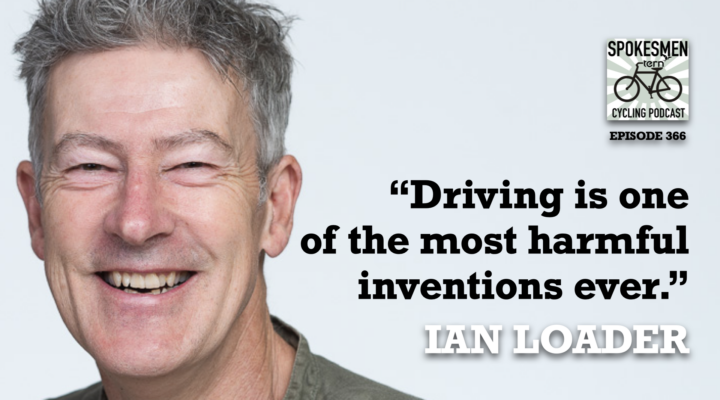
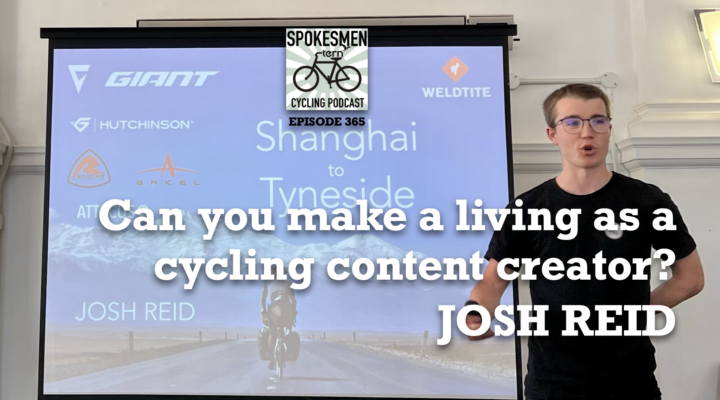
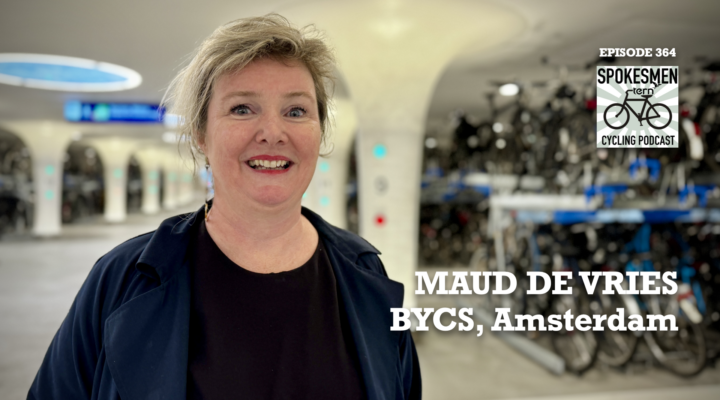
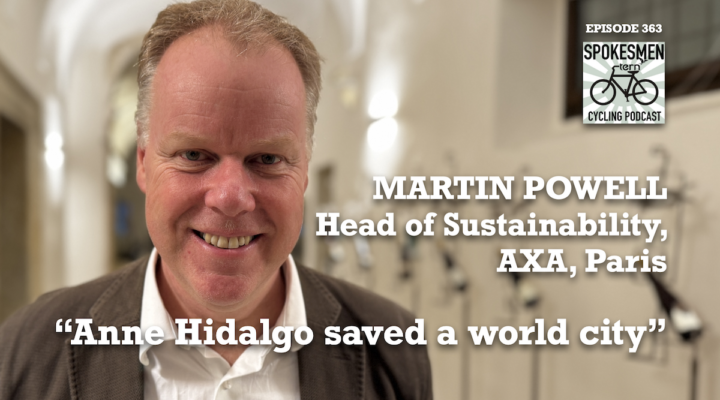
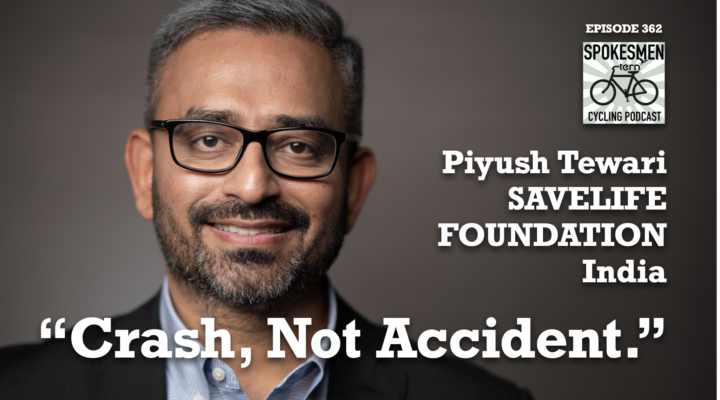
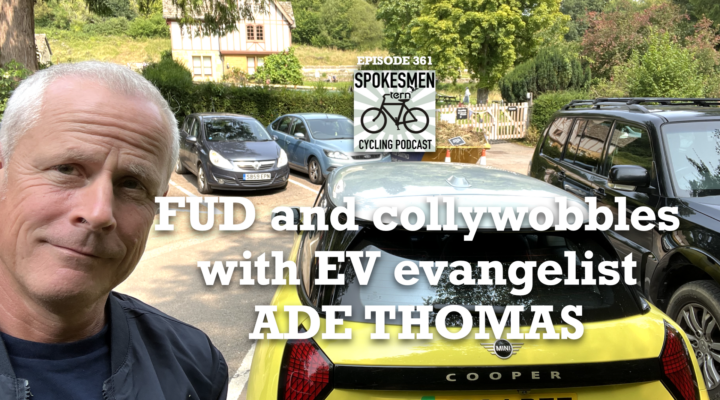
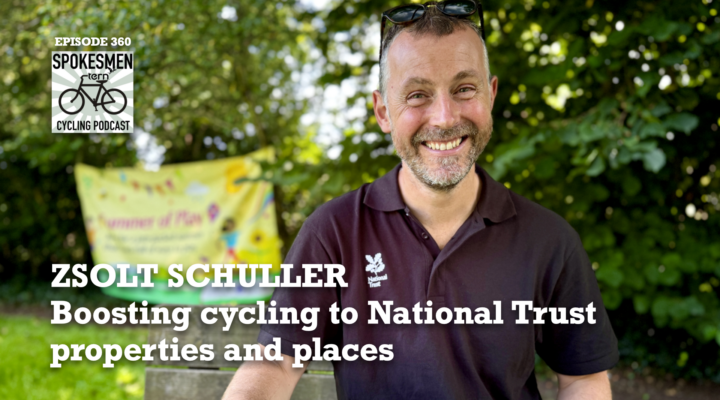
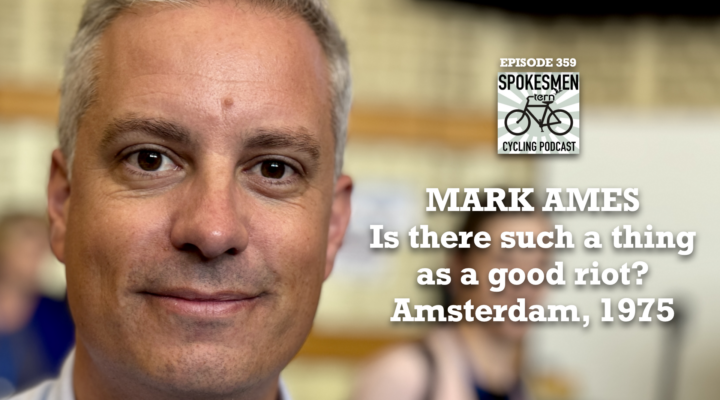
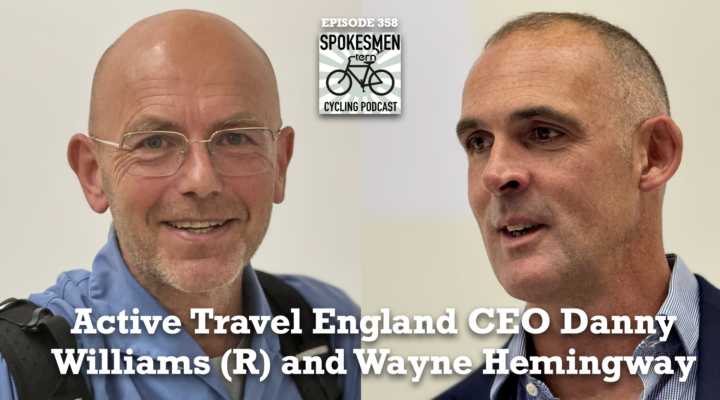
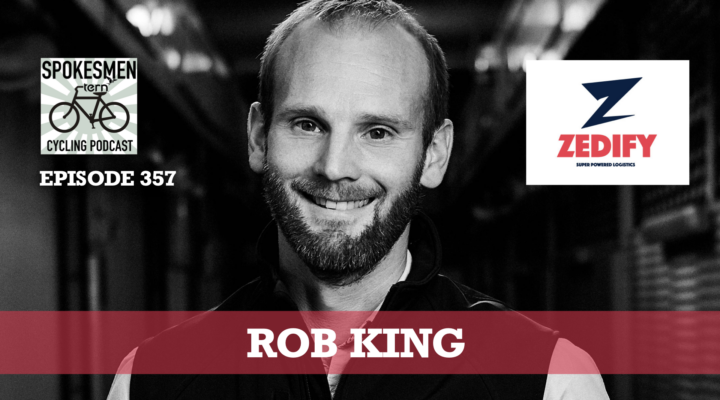
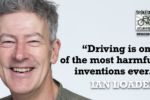
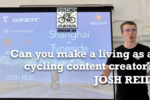
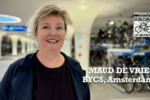
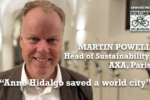
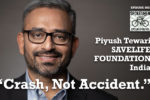
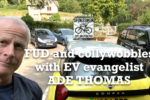
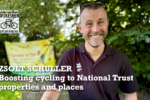
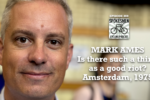
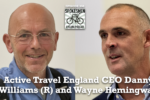
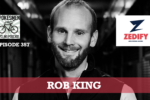
Be First to Comment